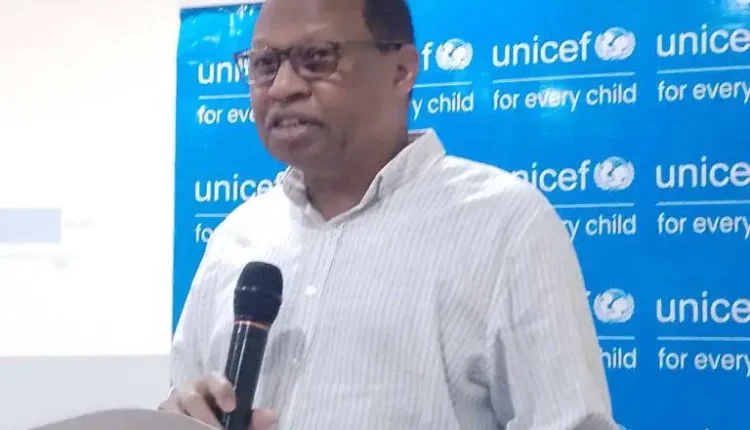The United Nations Children’s Fund (UNICEF), in collaboration with the Federal Ministry of Information and National Orientation, has trained over 60 Northwest journalists on ethical child rights reporting.
The two-day training, which began on Monday in Kano, was aimed at strengthening ethical standards in the coverage of child-related issues.
Mr Rahama Farah, Chief of UNICEF Field Office in Kano, in his keynote address, urged journalists to avoid sensationalism in stories involving children.
He emphasised prioritising children’s protection and dignity, noting that journalism remains essential for democracy and community building.
Farah said ethical reporting was vital for healing divisions, building trust, and safeguarding vulnerable children.
“You work in a complex environment, often at great personal risk, to bring truth and information to the public.
“Ethical reporting of children is not just a workshop theme. It is the bedrock of society and crucial for children’s future here,” he said.
Farah outlined three reasons why ethical child-focused journalism matters: promoting peace, protecting vulnerable children, and enhancing media credibility.
According to him, journalism grounded in accuracy, fairness, and balance is the best defence against misinformation and hate speech.
He explained that responsible reporting could foster dialogue and peace, while irresponsible coverage risked fuelling tensions.
Farah stressed that children must not be identified or stigmatised, especially victims of violence or abuse, warning that poor reporting could retraumatise survivors.
He noted that journalists who uphold ethics not only protect children but also strengthen their credibility, especially in a misinformation-driven social media era.
The training, tagged ‘Ethical Journalism and Child Rights Training for Media Practitioners in Northwest Nigeria’, focused on practical approaches to reporting child protection, conflict, and abuse.
It also covered interview methods, safeguarding protocols, and ethical storytelling techniques.
Farah urged participants to see themselves as “guardians of children’s dignity” and to promote hope and resilience rather than fear and stigma.


